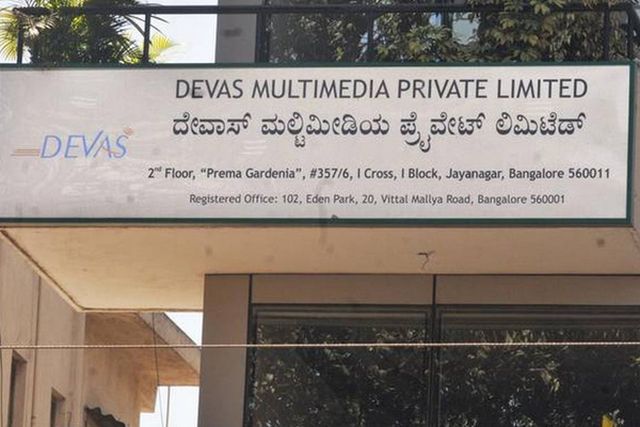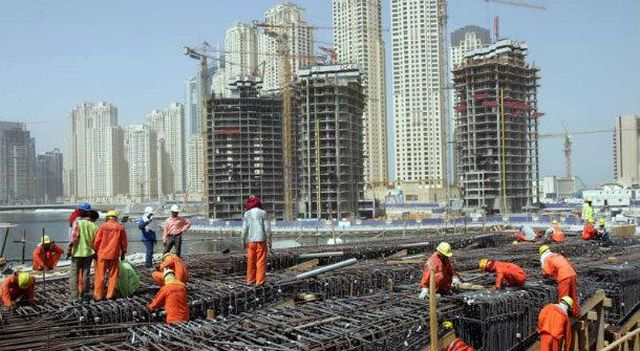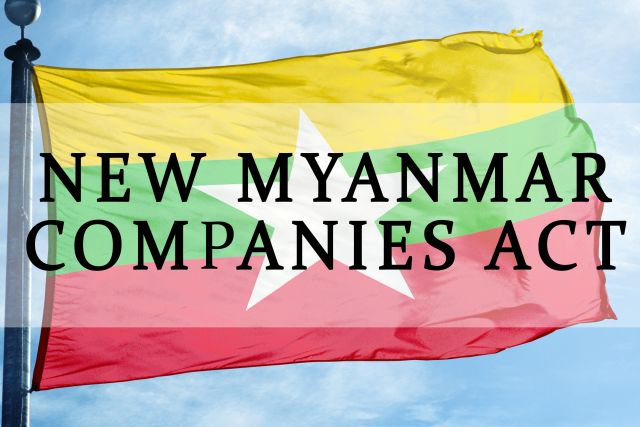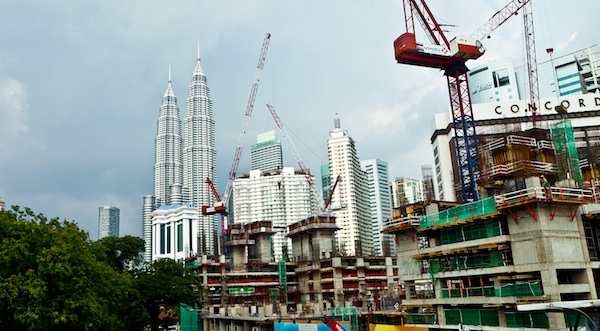
by admin | May 25, 2021 | News
 Bengaluru : The Enforcement Directorate (ED) imposed a Rs 1,585 crore penalty on satellite services provider Devas Multimedia Ltd, its directors and foreign investors for illegal foreign investment of Rs 579 crore against the Foreign Exchange Management Act (FEMA) 1999, the agency said on Sunday.
Bengaluru : The Enforcement Directorate (ED) imposed a Rs 1,585 crore penalty on satellite services provider Devas Multimedia Ltd, its directors and foreign investors for illegal foreign investment of Rs 579 crore against the Foreign Exchange Management Act (FEMA) 1999, the agency said on Sunday.
“The authority held Devas, its directors and foreign investors guilty of illegal foreign investment of Rs 579 crore in contravention of section 6(3) of FEMA and imposed Rs 1,585.08 crore penalty,” an ED statement here said.
The city-based Devas was set up in 2004 by a few former employees of the state-run Indian Space Research Organisation (ISRO) and entered into an agreement with its commercial arm, Antrix Corp, to provide bandwidth in satellites for services on commercial basis in digital media and broadcasting space.
“Based on tip-off, an investigation was initiated on investments Devas received from overseas persons as they were in contravention of the FEMA provisions,” said the statement.
The investigation revealed that Rs 579 crore was brought into the company by many foreign firms in violation of the Foreign Investment Promotion Board approval and provisions of section 6(3)(b) and 6 (3)(d) of FEMA and Foreign Exchange Management Regulations.
In another case under the Prevention of Money Laundering Act (PMLA), a designated city special court took cognisance of the prosecution complaint on February 1 against Devas for entering into an agreement with Antrix by fraudulently claiming that it had the ownership and intellectual property rights (IPRs) to use the technology for delivering multimedia services.
“Employees of ISRO and Antrix also conspired with Devas to enter into the agreement. On its strength, the latter fraudulently raised Rs 579 crore overseas and illegally transferred 85 per cent of it out of India to its subsidiary in the US in the guise of services and fee,” said the statement.
The ED on February 28, 2017 attached the company’s properties valued at about Rs 80 crore for their alleged involvement in money laundering and prosecution complaint filed in the designated PMLA special court in the city, with a prayer for punishment to the accused and confiscation of their attached properties.
—IANS

by admin | May 25, 2021 | Corporate, Corporate Reports, Investing, Property
 New Delhi : Foreign investment into the Indian real estate sector stood at $2.6 billion in 2017, a Knight Frank report said here on Monday.
New Delhi : Foreign investment into the Indian real estate sector stood at $2.6 billion in 2017, a Knight Frank report said here on Monday.
According to Knight Frank Indias Chairman and MD, Shishir Baijal, inflow of foreign capital into the segment registered a 31 per cent growth on a year-on-year basis in 2017.
“Cross-border capital inflows (excluding development sites) to India stood at $2.6 billion in 2017 recording a 31 per cent growth over 2016.
“Ranking an impressive 19th position amongst 73 countries that attracted cross-border capital into their property market, India has surged ahead of its Asia Pacific regional counterparts which collectively attracted lesser capital flows compared to India,” Baijal added.
Foreign investments into Indian real estate was higher than collective foreign investments in the other Asia Pacific countries of Malaysia, Thailand, Indonesia, Vietnam and Philippines, said Knight Frank’s “Active Capital: The Report 2018”.
The report further observed that due to reform measures including the Real Estate Regulatory Act (RERA), Goods and Services Tax and demonetisation, “the attractiveness of Indian real estate potential has caught the fancy of international investors and developers alike resulting into this favourable investment account”.
Capital flow into Indian property market was 10 times higher than the outflow in 2017, it said, adding that “$2.6 billion of inflow was recorded compared to outbound capital flows to the tune of $0.26 billion last year”.
—IANS

by admin | May 25, 2021 | Business, Corporate, Corporate Buzz, Corporate Governance, Investing, Large Enterprise
 New Delhi : Ahead of the World Economic Forum in Davos which Prime Minister Narendra Modi will attend this month, the Union Cabinet on Wednesday opened up Air India for foreign investors and brought in changes in key sectors by allowing 100 per cent foreign investment in single brand retail and construction development through the automatic route.
New Delhi : Ahead of the World Economic Forum in Davos which Prime Minister Narendra Modi will attend this month, the Union Cabinet on Wednesday opened up Air India for foreign investors and brought in changes in key sectors by allowing 100 per cent foreign investment in single brand retail and construction development through the automatic route.
The decisions, taken at a meeting of the Union Cabinet chaired by Modi and intended to liberalize and simplify the FDI policy to provide ease of doing business, drew sharp criticism from both the opposition and trade bodies.
However, the government contended that the move would “lead to larger FDI inflows contributing to growth of investment, income and employment”.
Wednesday’s decision marked a key change in the aviation industry where the government had already allowed up to 49 per cent FDI in private carriers. There was a restriction that foreign airlines could not invest in the loss-making Air India.
“It has now been decided to do away with this restriction and allow foreign airlines to invest up to 49 per cent under approval route in Air India subject to the conditions that foreign investments in Air India including that of foreign airlines shall not exceed 49 per cent either directly or indirectly,” an official statement said.
It added that substantial ownership and effective control of the national carrier shall continue to be with “vested in Indian national”.
The Cabinet also approved 100 per cent FDI in single brand retail trading, tweaking its present policy of allowing only 49 per cent foreign investment in the sector through automatic route and the rest through government approval.
It also gave five-year holiday for foreign investors from the mandatory 30 per cent of local purchases. But after that, they will be required to meet 30 per cent of sourcing norms directly towards its India operations on an annual basis.
The Cabinet also decided to allow 100 per cent FDI in construction development relating to building townships, housing, infrastructure and real estate broking services.
“It has been decided to clarify that real estate broking service does not amount to real estate business and is therefore eligible for 100 per cent FDI under automatic route.”
Making changes in the sector relating to power exchanges, the government removed the restrictions on investment by foreign institute investors and portfolio investors to invest in power exchanges through primary market as well. Under the present policy, FII and FPI purchases were restricted to secondary market only.
The Congress and the CPI-M slammed the government move on Air India, saying it would only lead to the national carrier going into the hands of a foreign airline.
Former union minister Anand Sharma said the government should come clear on the Air India deal as to whether its assets “worth lakh of crores of rupees” and its route rights would also go to the investor.
He said the UPA government had consciously kept Air India out of the purview of FDI though it had allowed 49 per cent FDI in the civil aviation sector.
The Communist Party of India-Marxist (CPI-M) said the Modi government was now moving towards handing over Air India to a foreign airline.
“The government should heed the recommendation of the Parliamentary Standing Committee on Transport, Tourism and Culture which has asked the government to review its decision on privatisation of Air India and provide five years to revive the airline with its debt written off.”
There was support to the Air India move. Pervez Damania, a former Director of the now defunct Kingfisher Airlines, welcomed it saying the “government has no business to be in flying”.
P.N. Vijay, a market analyst, said the decision was “not good enough”. “It should be 100 per cent FDI in Air India.”
On allowing 100 per cent FDI through the automatic route in single brand retail, the CPI-M said the move portends the Modi government’s intentions of “moving towards allowing FDI in multi-brand retail trade”. It warned of grave consequences for the domestical retail trade.
However, Ananda Sharma termed the FDI in retail “a cosmetic change” and “minor tweak”.
“I don’t think its going to make much change because almost all the major brands of the world are already here as 100 per cent FDI was already allowed. This is done perhaps for the Prime Minister to make a statement at Davos.”
Both Congress and the CPI-M reminded the BJP that it had opposed the entry of foreign companies into retail trade earlier and it has now “hypocritically reversed its position”.
Calling it a “serious matter” for small businesses, the Confederation of All India Traders (CAIT) strongly opposed the FDI in single brand retail.
Condemning the Modi government’s “love for MNCs”, CAIT Secretary General Praveen Khandelwal said the move would facilitate easy entry of multi-national companies in retail trade and leave a large number of people jobless.
“It’s a serious matter for small businesses. It is a pity that instead of formulating policies for the welfare, upgradation and modernisation of existing retail trade, the government is more interested in paving the way for the MNCs to control and dominate the retail trade of India.”
Modi will be the first Prime Minister after 20 years to participate in the annual World Economic Forum show in Davos where world leaders and top industrialists and businessmen meet. The four-day event begins on January 23.
—IANS

by admin | May 25, 2021 | Investing, World
 Nay Pyi Taw : Myanmar authorities will enforce a new Companies Law next year to attract more foreign investment.
Nay Pyi Taw : Myanmar authorities will enforce a new Companies Law next year to attract more foreign investment.
The new Myanmar Companies Act, approved by Parliament this month, was enacted to replace the Companies Act of 1914, Xinhua news agency reported on Thursday.
According to the Directorate of Investment and Company Administration (DICA), the new law will facilitate rapid registration for companies using the online registration system.
In accordance with the new law, foreign investors will be allowed to take up to 35 per cent in a local company.
Previously, a company with even 1 per cent of its shares owned by a foreign investor was classified as a foreign company, instead of a local company.
According to statistics, foreign direct investment (FDI) in Myanmar totalled to over $4.3 billion in the first half of the fiscal 2017-18, increasing by $3 billion, compared to the same period of the last fiscal.
—IANS

by admin | May 25, 2021 | World
 Nay Pyi Taw, (IANS) Myanmar has targeted $8 billion foreign investment in the present fiscal year of 2016-17, the Directorate of Investment and Company Administration announced on Monday.
Nay Pyi Taw, (IANS) Myanmar has targeted $8 billion foreign investment in the present fiscal year of 2016-17, the Directorate of Investment and Company Administration announced on Monday.
The country drew $9.5 billion foreign investment in the last fiscal year of 2015-16 which ended in March, Xinhua news agency reported.
Myanmar received $1.413 billion foreign investment in 2012-13, $4.107 billion dollars in 2013-14 and over $5 billion in 2014-15, the directorate said.
According to official statistics, foreign investment in Myanmar totalled to $63.718 billion as by the end of March after a gap of over 27 years.
Foreign investment during former president U Thein Sein’s previous five-year government term from 2011 to 2016 created over 350,000 job opportunities.
The Myanmar Investment Commission has been encouraging more foreign direct investment in trade, agriculture and infrastructure in order to speed up the country’s economic development and create more job opportunities.

 Bengaluru : The Enforcement Directorate (ED) imposed a Rs 1,585 crore penalty on satellite services provider Devas Multimedia Ltd, its directors and foreign investors for illegal foreign investment of Rs 579 crore against the Foreign Exchange Management Act (FEMA) 1999, the agency said on Sunday.
Bengaluru : The Enforcement Directorate (ED) imposed a Rs 1,585 crore penalty on satellite services provider Devas Multimedia Ltd, its directors and foreign investors for illegal foreign investment of Rs 579 crore against the Foreign Exchange Management Act (FEMA) 1999, the agency said on Sunday.



